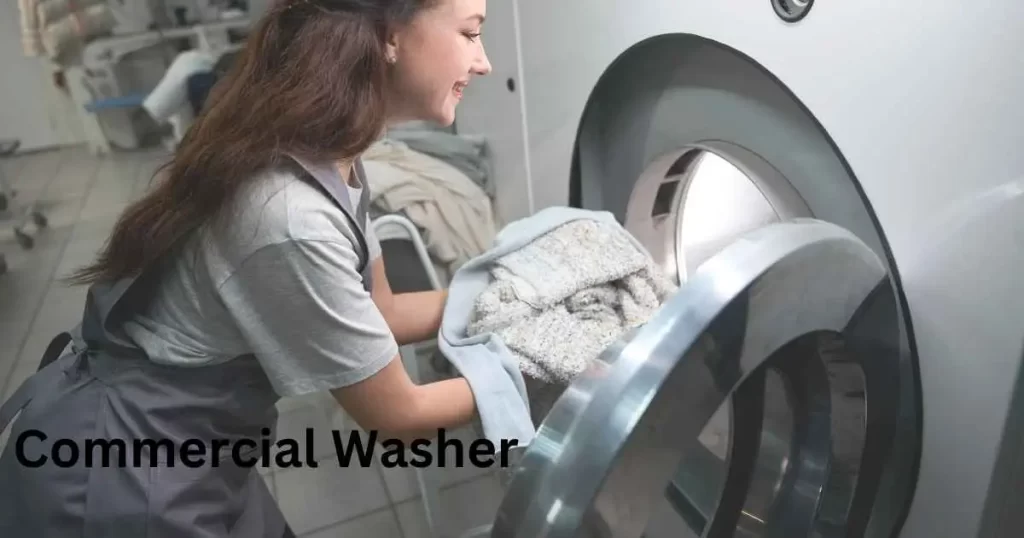The commercial laundry business is tough on equipment. Near-constant use and heavy loads mean your commercial or industrial washer won’t last forever. However, with proper care and maintenance, you can extend its lifespan significantly. On average, well-maintained washers last 15 to 20 years.
Follow these six essential maintenance tips to keep your washers running efficiently and help them last longer.
1. Leave the Washer Door Open When Not in Use
Leaving the washer’s main door slightly open when it’s not in use prevents mold buildup and unwanted odors. A closed door traps moisture inside, creating the perfect environment for bacteria and mold to grow. If you notice any unpleasant smells, it’s time for a deep clean, as described in Tip 2.
2. Run a Cleaning Cycle Periodically
Run the washer without a load using the hot water setting and a cup of white vinegar. This process helps remove residual soap, bacteria, and mold that can accumulate inside the drum. For commercial washers used frequently, consider performing this cleaning every few weeks to maintain optimal hygiene and performance.
3. Clean the Detergent Drawers Regularly
Detergent, bleach, and fabric softener residues can build up in the washer’s detergent drawers, leading to odor, leakage, and decreased cleaning performance. Remove the drawers and rinse them under warm water, focusing on the bleach compartment. Regular cleaning ensures better wash quality and prevents clogs.
4. Clear the Drain Pump Filter
Lint, debris, and small objects can accumulate in the drain pump filter, reducing the washer’s efficiency and potentially causing blockages. Check and clean the filter regularly, especially if the washer is in heavy use. For high-traffic laundry operations, inspect the filter weekly or biweekly.
5. Inspect Water Inlet Hoses Frequently
Visually inspect your inlet water hoses for blisters, cracks, or signs of wear. A small blister could indicate an impending rupture, which may lead to leaks or flood damage. Replace hoses every five years, regardless of their appearance, to avoid unexpected failures and costly repairs.
6. Check and Clean Inlet Valve Filter Screens
Debris can accumulate on the filter screens of your water inlet valves, reducing water flow and increasing wash times. Inspect these screens annually and remove any dirt or buildup to maintain efficient operation. This simple step ensures your washers fill quickly and operate effectively.
The Benefits of Routine Maintenance
Washers are the lifeline of your laundry operation. Treat them well, and they’ll reward you with reliable performance and longevity. By following these six simple tips:
- You’ll save on repair costs and replacement parts.
- Your washers will perform better, ensuring optimal cleaning results.
- You’ll minimize downtime, keeping your business running smoothly.
- You’ll achieve a higher return on investment for your equipment.
Say goodbye to “out of order” signs and hello to uninterrupted service!



